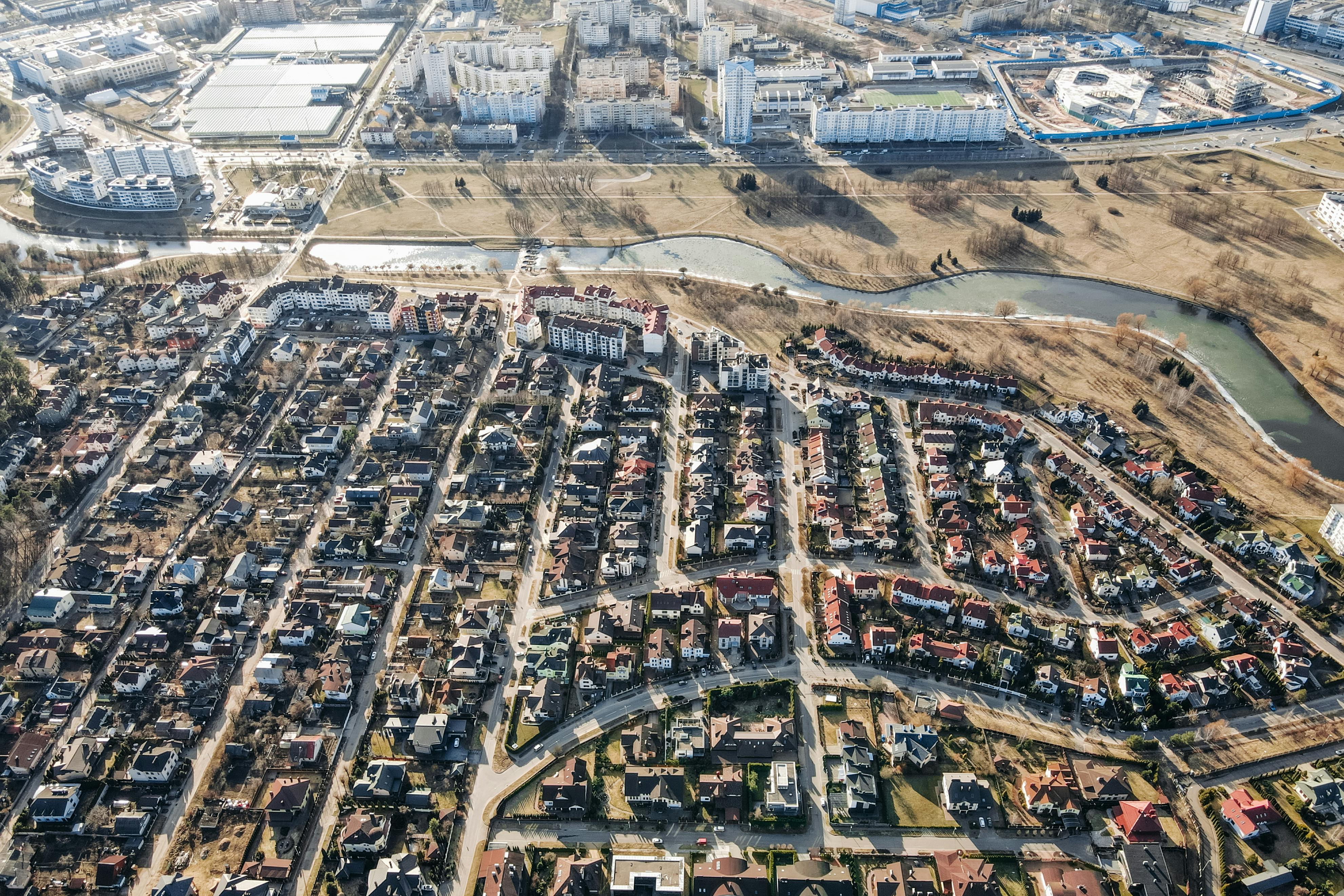Zoning laws are not just technical rules—they shape the future of our cities, neighborhoods, and homes. They determine what can be built, where, and how spaces can be used, influencing everything from property values to urban growth. For homebuyers, investors, and residents, understanding zoning is key to making informed decisions about where and how to invest in real estate.
As cities expand and evolve, zoning becomes crucial in managing that growth. It sets the stage for everything from residential areas to mixed-use developments, guiding how communities function and ensuring compatibility between different land uses. Let’s take a look at how zoning works, its impact on property values, and how it shapes the cities we live in.
🏢 What is Zoning?
Zoning is the practice of dividing a city or county into different areas with specific land-use regulations. These regulations define what can be built and how land can be used. The most common zoning types are:
Residential Zoning: Areas designated for homes, apartments, or single-family dwellings.
Commercial Zoning: Areas for businesses, shops, or office spaces.
Industrial Zoning: Areas for factories, warehouses, and other industrial uses.
Mixed-Use Zoning: Areas that combine residential, commercial, and sometimes industrial use, promoting live-work-play environments.
These zoning classifications ensure that compatible land uses are grouped together—keeping factories out of quiet residential areas and placing retail spaces near commercial hubs. This helps maintain the quality of life for residents and ensures that the infrastructure can support future growth (City Planning, n.d.).
🌆 Zoning's Impact on Property Values
Zoning laws can have a direct impact on property values, as they influence the type of development and use allowed in an area:
Residential Zones: These are typically considered the most stable and desirable for long-term living. However, high-density residential areas—like apartment buildings or townhomes—may increase property values due to the higher demand for living space.
Mixed-Use Zones: Areas that allow both residential and commercial spaces are often more valuable. The proximity to amenities such as shops, restaurants, and businesses makes these areas more attractive to buyers who prefer a walkable lifestyle. Properties in these zones tend to appreciate more quickly as demand rises for mixed-use living environments (Urban Land Institute, n.d.).
Environmental Zones: Zoning laws that prioritize environmental conservation (such as green spaces and parks) can also increase property values. As buyers become more environmentally conscious, homes near parks or conservation areas can see higher demand due to their natural surroundings (City Planning, n.d.).
🌍 Zoning and the Future of Urban Development
Cities are evolving rapidly, and zoning regulations are adapting to meet the needs of growing populations. Urban planning is shifting toward smart growth—focusing on sustainable development, increased density, and green building practices. Some key trends influencing future zoning and development include:
Walkable Communities: More cities are focusing on creating walkable neighborhoods with mixed-use zoning. This encourages residents to live, work, and shop within walking distance, reducing their reliance on cars. Cities like Nashville and Knoxville are seeing the rise of these neighborhoods, where residents can access amenities without having to drive (Urban Land Institute, n.d.).
Sustainable Zoning: As environmental concerns grow, cities are adopting green building codes and creating zoning laws that encourage sustainable architecture and energy-efficient homes. These regulations promote eco-friendly development practices, such as using renewable energy and minimizing waste, which are attractive to both homebuyers and investors (American Planning Association, n.d.).
Transit-Oriented Development (TOD): Cities are focusing on transit-oriented development to reduce traffic congestion and promote the use of public transportation. By creating higher-density housing near transit hubs, such as bus stations or light rail, urban areas are becoming more connected and sustainable. Chattanooga, for example, is embracing TOD to promote easier access to public transportation and reduce urban sprawl (American Planning Association, n.d.).
🏙️ Zoning in Tennessee: Challenges and Opportunities
Tennessee cities are experiencing rapid growth, especially Nashville, where the real estate market is booming. As more people move to urban areas, zoning laws are being reevaluated to ensure the cities can accommodate that growth without compromising quality of life.
Affordable Housing: Zoning is a key factor in addressing the growing demand for affordable housing in urban centers like Nashville. City officials are revisiting zoning regulations to allow for more affordable housing developments without changing the aesthetic or character of neighborhoods (Tennessee Department of Economic and Community Development, n.d.).
Balancing Urban and Suburban Needs: Suburban areas in Tennessee are facing challenges with zoning laws that restrict higher-density developments. Many suburban regions are updating their zoning codes to accommodate mixed-use developments, encouraging a balanced approach to urban expansion while maintaining green spaces and residential integrity (Tennessee Department of Economic and Community Development, n.d.).
✅ Conclusion
Zoning laws are fundamental in shaping how cities and communities develop. As Tennessee cities like Nashville and Knoxville continue to grow, zoning will play a major role in guiding future development. Whether you're looking to buy, sell, or invest, understanding zoning is essential for making informed real estate decisions.
The future of zoning is about more than just where you can build—it’s about how cities can grow responsibly while providing better living options and maintaining community values.
🏡 Partners Realty Group
📞 (865) 789 – 6677
"Building communities with vision and purpose."
Ready to take the next step? Visit us at Homes.com!
Sources:
City Planning. (n.d.). What is Zoning? Retrieved from City Planning
Urban Land Institute. (n.d.). The Rise of Walkable Cities. Retrieved from Urban Land Institute
Tennessee Department of Economic and Community Development. (n.d.). Urbanization in Tennessee. Retrieved from Tennessee Department of Economic and Community Development
American Planning Association. (n.d.). What is TOD? Retrieved from American Planning Association


